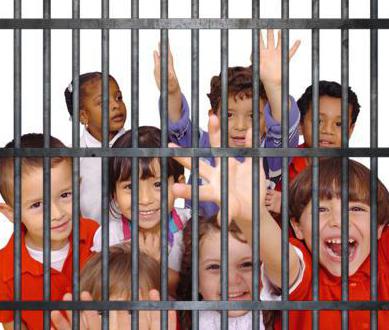Social pedagogy as a science - yesterday and today.
The term "social pedagogy" in the Russianpedagogical science currently has several definitions. This is justified by the history of the formation and development of social pedagogy in Russia. To date, there are several socio-educational schools that consider social pedagogy from different points of view.
Social pedagogy as a branch of pedagogywas determined by the scientists GM Kodzhaspirova (investigating the impact of the social environment on the upbringing and formation of personality), AV Mudrik (investigating social education in the context of socialization).
Social pedagogy as a science on educational influences of the social environment is interpreted by V.D. Semenov.
Other scientists adhere to the definitionsocial pedagogy as a theory and practice of a certain activity (IA Lipsky - harmonization of human-social interaction, TAVasilkova - training and education of an individual or a group of people, FAMustayeva - cognition, regulation and implementation of the process of socialization ).
The stages in the development of pedagogy as a science reveal the development of social and pedagogical ideas even in the ancient world. The most important social and pedagogical problems were expressed by ancient Greek philosophers.
In the development of pedagogy, tosocially-pedagogical thought the world-famous pedagogues YA Komensky, I.G.Pestalozzi, John Lock, J.-J.Russo, K.D. Ushinsky, STShatsky, ASMakarenko, Janusz Korczak. Social pedagogy as a science developed under the influence of their pedagogical ideas and experimental experience.
I.G.Pestalozzi is famous for his social and pedagogical experiments. The selfless work of the teacher to create shelters for poor children and orphans, the richest studies on education and training in shelters are still relevant today.
Socio-pedagogical activityMakarenko on the education of juvenile offenders is currently highly valued by teachers around the world. In Germany, even a laboratory was created to study the social and pedagogical experience of AS Makarenko.
S.T.Shatsky headed the First Experimental Station of the People's Commissariat of Education, which in the 1920s was a unique social and pedagogical complex consisting of several schools, kindergartens, colony, libraries, clubs. The experimental work of teachers under the guidance of ST Shatsky left the socio-pedagogical heritage on the development of many aspects of environmental pedagogy.
Great writer and educator Janusz Korczak, deceasedin a gas chamber with his pupils, created a unique educational system of the House of Orphans in Warsaw, whose research is still surprising with novelty and relevance.
Social pedagogy as a science has its own categorical apparatus. It includes both general categories of pedagogical science, and specific.
Socialization is one of the main categoriessocial pedagogy - is defined as the process of assimilation, assimilation and appropriation by an individual of social norms and values throughout life. Foreign and domestic social pedagogy adheres to several theories of socialization.
Social pedagogy as a science in the presenttime is actively developing. However, among scientists there is still no unified opinion on many topical issues. At the stage of discussion are her place both in the system of pedagogical science and in the system of social sciences. Some researchers consider social pedagogy to be part of social work and apply the social work methodology to the organization of social and pedagogical activity.
But it is obvious that the achievements of the nationalsocial pedagogy served to the fact that in 1991 in Russia the profession of a social pedagogue was officially recognized. Social and pedagogical activity is aimed at solving problems of social education and social and pedagogical protection.













